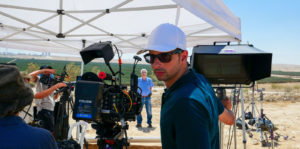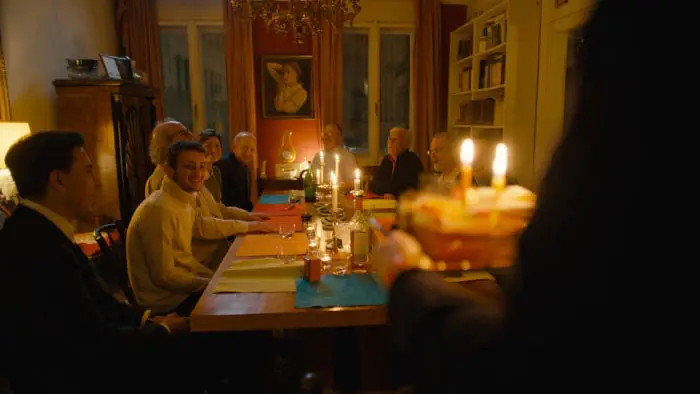
For a sneak preview, MINT, Montana International Film Festival, closed its 2022 festival with the feature documentary film Who Are the Marcuses? the latest work by filmmaker Matthew Mishory. It is a story about previously unknown philanthropists Lottie and Howard Marcus, whose $500 million gift to Israel’s Ben-Gurion University ensures a future with water and offers hope and prosperity as a beacon for all. Who Are the Marcuses? features Warren Buffett, Israeli President Isaac Herzog, historian Daniel Gordis, best-selling philosopher Micah Goodman, E. Randol Schoenberg, and several others–all whom support how a gift of this proportion can change the course of history.
Based in Los Angeles, Matthew Mishory has been a working filmmaker for over a decade, starting in narrative feature films, which led to a successful career in directing commercials and, most recently, a collection of documentary films where he is establishing his genre in historical narratives. His film resume includes an experimental feature film debut, Joshua Tree, 1951: A Portrait of James Dean, shot on 35mm. His short film Delphinium, about artist Derek Jarman, was included in the British Film Institute’s National Film Archive. The documentary Absent was filmed in the remotest reaches of rural Moldova in the former Soviet Union. Artur Schnabel: No Place of Exile is about the modernist composer and pianist Artur Schnabel.
“I have had a strange sort of bifurcated directing career,” says Matthew. “After making an experimental first feature, I embarked on an unexpected commercial career.” Two notable campaigns with NBA star Giannis Antetokounmpo took him from a niche arthouse audience to Super Bowl Sunday. Commercial work, he explains, in turn, led to documentary opportunities. “And I have been creating my documentary visual language ever since.”
A U.S.-Israeli dual citizen, Matthew is discovering and uncovering subject matter close to his heritage and heart, allowing him to carve out a film genre that looks at those under-the-radar figures whose contributions have changed the course of history.

“Never before have there been so many ways to access documentaries, and for filmmakers, that spells opportunity.”
Who Are the Marcuses? is well-positioned to do this, he says. “Climate change is widely discussed, but the water crisis component, until recently, is not. Israel is, for various reasons, fair and otherwise, a widely discussed country. That it’s an unbelievable environmental success story in the field of water technology is not. It will be now. California is the world’s fifth largest economy, but California has not implemented the technological solutions that are readily available and that have worked in Israel to address its water crisis.”
Besides, the growing global water crisis assumes both ends of the spectrum: flooding and scarcity. Governments need help, and it’s time for philanthropists to step up. The era of big philanthropy has arrived, and it has the power to change lives.
“The film positions philanthropy as a concept and a lifestyle where everyone can participate at their own level,” says Matthew. “It’s not the only component but an essential component of addressing global problems.”
Along with the film’s producers, Mishory felt a solutions-oriented approach was needed. “There are plenty of alarming films about the climate, and they play their part. But we wanted to focus on technology-based solutions that exist now.”
For Matthew, Who Are the Marcuses? began with an image of Lottie and Howard Marcus. He found it mesmerizing and full of meaning as the photo was taken on their only trip to Israel in the mid-2000s.


